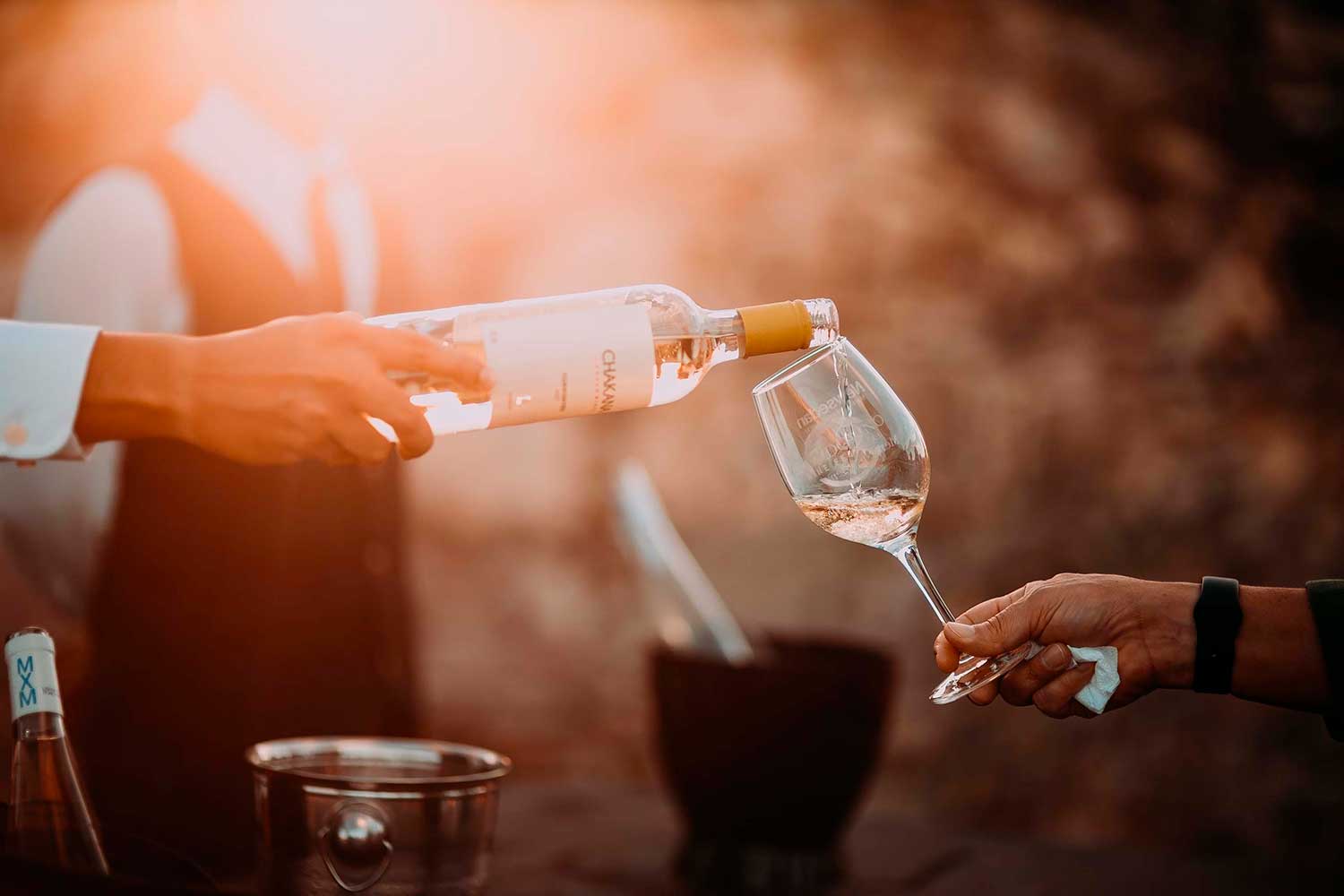Discover 20 must-see vineyards in the Côtes-du-Rhône, between Châteauneuf-du-Pape, Condrieu, and Ventoux, for unique wine tastings.
The Côtes-du-Rhône is one of France’s largest and most diverse wine regions, stretching over 200 kilometers between Vienne and Avignon. From the steep terraces of the northern Rhône to the rounded pebbles of the south, this wine-growing region offers a wealth of grape varieties, terroirs, and styles that appeal to wine lovers around the world. To help you explore this wine-growing heritage, we have selected 20 must-visit estates, spread across iconic crus such as Châteauneuf-du-Pape, Côte-Rôtie, and Hermitage, as well as lesser-known appellations such as Ventoux, Cairanne, and Tavel. Each vineyard presented here offers not only wines of character, but also a true wine tourism experience: walks through the vineyards, cellar tours, sensory workshops, and guided tastings. Whether you are a connoisseur or simply curious, this selection will guide you on an authentic journey to the heart of the Rhône wines.
The 20 best Côtes du Rhône estates for tasting
E. Guigal (Ampuis) – Côte-Rôtie
Located in Ampuis, in the heart of Côte-Rôtie, E. Guigal is one of the historic pillars of quality in the northern Rhône Valley. Founded in 1946, this family business quickly established itself as a major player, thanks to its exemplary winemaking rigor and precise work on exceptional terroirs. Guigal is particularly renowned for its three legendary cuvées known as “LaLa” – La Mouline, La Turque and La Landonne – produced from micro-plots in Côte-Rôtie, renowned for their complexity and aging potential.
A visit to the Caveau du Château, open to the public in Ampuis, offers a fascinating insight into the world of the great Rhône wines. The vaulted cellars offer a glimpse of the barrels in which the finest vintages are aged, and guided tastings allow visitors to discover both the deep reds of the valley and the mineral and aromatic whites such as Condrieu, made from Viognier grapes.
The estate also produces more accessible wines under the Côtes-du-Rhône appellation, offering a complete range for all wine lovers. World-renowned, Guigal remains faithful to its local roots and an artisanal approach to winemaking. Reservations recommended.
Domaine Georges Vernay (Condrieu) – Northern Rhône
Located in Condrieu, Domaine Georges Vernay is a must for lovers of Viognier and white wines with character. Founded by Georges Vernay, a pioneer in the revival of Condrieu in the 1950s, the estate was taken over with great success by his daughter Christine Vernay. Under her leadership, the estate has consolidated its international reputation while adopting environmentally friendly viticultural practices.
The estate covers approximately 24 hectares, including several steep terraces overlooking the Rhône. The Condrieu wines produced here are renowned for their finesse, silky texture, and intense floral aromas (apricot, violet, honey). Vernay also produces equally elegant Côte-Rôtie reds from old Syrah vines.
Visits are available by appointment in an intimate and educational setting. They often include vertical tastings, allowing you to compare different vintages of the same cuvée—a rare experience that provides a better understanding of how wine evolves over time. The estate perfectly illustrates the combination of tradition and modern precision in the production of great Rhône white wines.
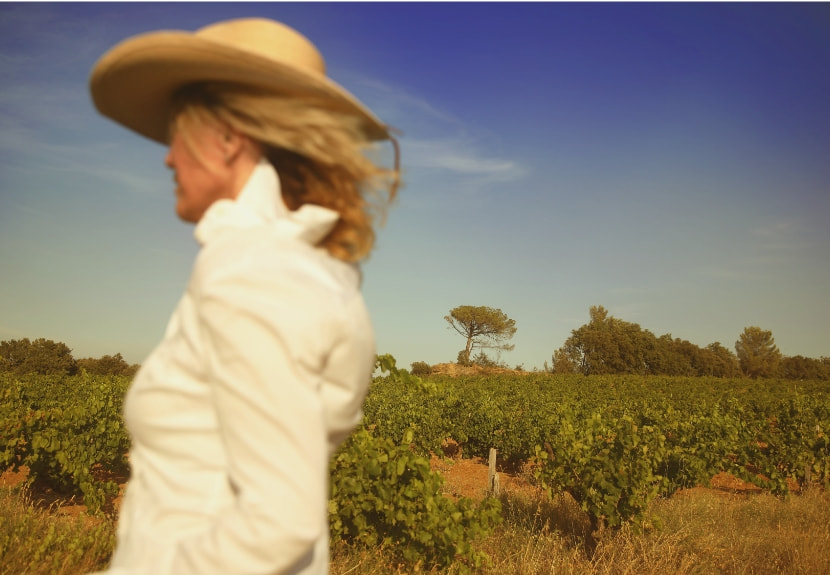
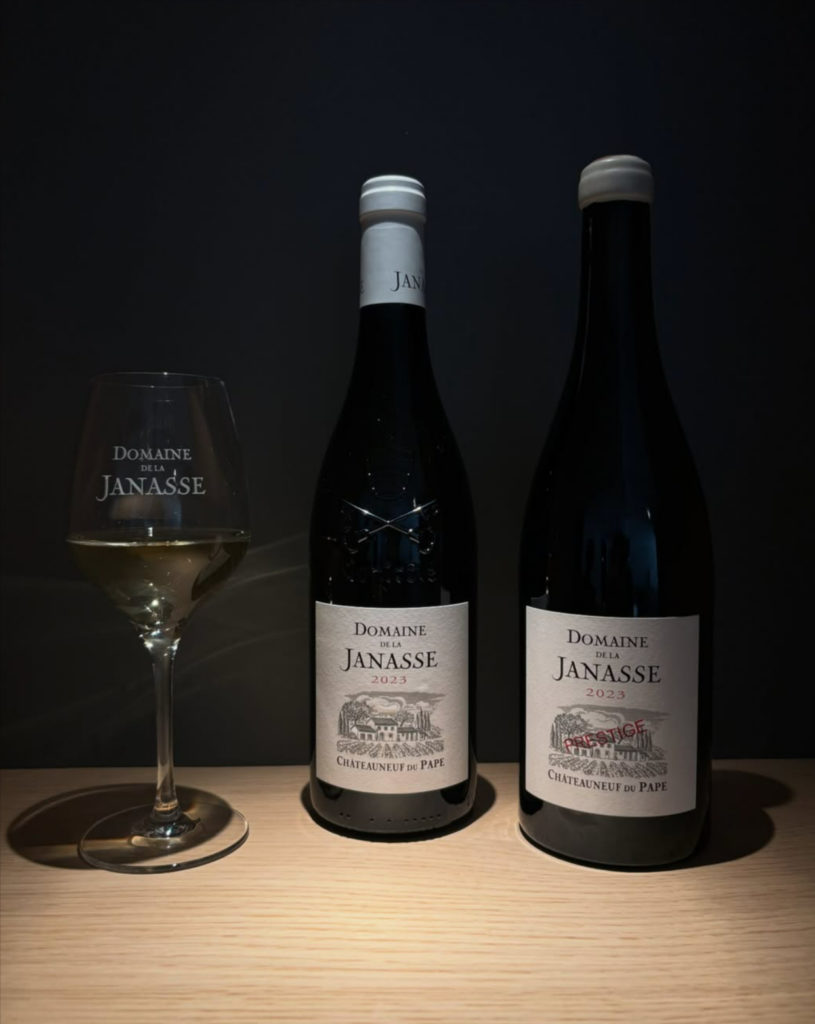
Domaine Alain Jaume – Clos de Sixte (Lirac)
Located in Domazan, on the right bank of the Rhône, Domaine Alain Jaume – Clos de Sixte is an excellent gateway to the diversity of southern wines, notably Lirac, Châteauneuf-du-Pape, and Vacqueyras. This family estate, cultivated since 1826, is now run using organic farming methods and offers a complete and immersive wine tourism experience.
The estate stretches across clay-limestone hillsides rich in rounded pebbles, similar to those of Châteauneuf-du-Pape. The quality of the terroirs combined with precise winemaking results in balanced, expressive wines with great gastronomic potential. The reds are rich in black fruits and spices, while the whites express floral notes and a lovely freshness.
A visit to the estate is particularly rewarding: it includes a guided walk through the vineyards, an explanation of sustainable winegrowing practices, and sensory tasting workshops. It is also possible to participate in winemaker meals with food and wine pairings in a warm setting. This estate is ideal for those who wish to better understand the lesser-known but equally noble appellations of the southern Rhône.
Domaine de la Janasse (Courthézon) – Châteauneuf-du-Pape
Founded in 1973 by Aimé Sabon and now run by his children Isabelle and Christophe, Domaine de la Janasse has become an essential reference in Châteauneuf-du-Pape. Located in Courthézon, this family estate produces expressive and deep wines that appeal to international critics and discerning wine lovers alike.
The estate covers around 90 hectares, divided between Châteauneuf-du-Pape, Côtes-du-Rhône and Vin de Pays. The terroir is composed of rolled pebbles, red clay and sand, allowing for great diversity in the blends. The reds, often dominated by Grenache, are powerful but balanced, with aromas of black fruits, spices, and garrigue. The whites, less well known but remarkable, reveal a beautiful complexity around Grenache blanc, Roussanne, and Clairette.
Visits are by appointment and include a detailed tour of the winery and a guided tasting of the estate’s main wines. The welcome is professional yet friendly, and the detailed explanations help visitors understand the unique identity of each wine. This is an essential stop for lovers of great southern Rhône wines.
Château de Beaucastel (Courthézon) – Châteauneuf-du-Pape
The Château de Beaucastel, located at the northern end of the Châteauneuf-du-Pape appellation, is one of the most iconic estates in the Rhône wine region. Owned by the Perrin family since the early 20th century, it is distinguished by a philosophy based on respect for the terroir, traditional winemaking, and pioneering biodynamic cultivation in the region.
Beaucastel is one of the few estates to use all 13 authorized grape varieties of the appellation in its blends, giving its wines a unique aromatic richness and structure. Mourvèdre plays an important role, bringing complexity, freshness, and longevity. The white wines, made from Roussanne, are also renowned for their finesse and aging potential.
A visit to the estate offers an immersion in the history and winemaking practices of the Perrin family, with a stroll through the stony vineyards, a tour of the underground cellars, and a tasting of the flagship wines, including the legendary Château de Beaucastel red. The experience is comprehensive, educational, and focused on understanding the uniqueness of this exceptional wine.
It is an essential stop for lovers of great Rhône wines and authentic winemaking.
Domaine du Coulet – Matthieu Barret (Cornas) – Northern Rhône
The Domaine du Coulet, run by winemaker Matthieu Barret since 1998, is located in Cornas, in the heart of the Ardèche wine region. Committed to biodynamic farming, the estate embodies a modern, demanding and respectful vision of nature, while preserving the authenticity of the wines of the northern Rhône. The vines are cultivated without chemical inputs, using gentle, manual practices on the steep slopes typical of the appellation.
The estate specializes in Syrah, the king of Cornas, which expresses itself here in dense, mineral, and very pure wines. Barret’s style is recognizable: gentle extraction, minimal oak aging, and a search for finesse in terroirs often associated with power. His wines, such as “Brise Cailloux” and “Billes Noires,” are regularly praised for their precision and aging potential.
The visit offers an introduction to biodynamic methods, a walk through the granite terraces, and a cellar tasting highlighting the different expressions of Cornas. The place also charms with its contemporary atmosphere, which is both engaging and educational. An essential stop for those interested in high-precision natural wines.
Domaine Saint Préfert (Châteauneuf-du-Pape) – Southern Rhône
Located south of the village of Châteauneuf-du-Pape, Domaine Saint Préfert has risen to become one of the most sought-after estates in the appellation under the leadership of Isabel Ferrando, a passionate and demanding winemaker. Since taking over the estate in 2003, she has breathed new life into it, combining finesse in blending, organic (and later biodynamic) viticulture, and gentle winemaking.
The estate covers around 24 hectares, with a terroir rich in rounded pebbles and clay-limestone soils. The red wines, predominantly Grenache, are characterized by their elegance, silky texture, and aromatic depth. The “Réserve Auguste Favier” and “Collection Charles Giraud” cuvées are among the most acclaimed by critics. Saint Préfert also produces a refined white Châteauneuf-du-Pape made from Clairette, Roussanne, and Grenache Blanc.
Visits are generally personalized and confidential, by appointment. They include a tour of the cellars, an in-depth presentation of the biodynamic approach, and a guided tasting of the wines. The welcome is warm and unpretentious, emphasizing the transmission of a sensitive and artisanal vision of wine. A must for lovers of great winemaking precision.
Domaine La Bastide Saint Dominique (Courthézon) – Châteauneuf-du-Pape
The Domaine La Bastide Saint Dominique, located in Courthézon, is a family estate founded in the 1970s on the ruins of a former 16th-century chapel. Now run by Éric Bonnet, the estate covers around 20 hectares of organically farmed vineyards spread across the renowned terroirs of Châteauneuf-du-Pape, Côtes-du-Rhône Villages, and IGP Méditerranée.
The wines produced here, both red and white, are distinguished by their aromatic frankness, balance, and ability to reflect the typical characteristics of the vintage. The reds are made from Grenache, Syrah, Mourvèdre, and Cinsault, offering warm and generous profiles, while the whites seduce with their freshness and floral aromas. The “Les Hesperides” and “Secrets de Pignan” cuvées are particularly emblematic of the pursuit of elegance and purity.
A visit to the estate includes a personalized welcome, a presentation of the organic winemaking process, and a complete tasting of the different wines with food and wine pairing suggestions. The setting is simple, authentic, and focused on interaction. It is an excellent stop for wine lovers who want to discover artisanal, sincere, and well-crafted wines.
Domaine Vintur (between Gigondas and Ventoux) – Southern Rhône
Located at the foot of Mont Ventoux, between Gigondas and Carpentras, Domaine Vintur is an Anglo-French estate that combines Rhône tradition and innovation in wine tourism. Entirely converted to organic farming, this 12-hectare estate benefits from a varied terroir, composed of clay, limestone, and pebbles, at an altitude conducive to the freshness of the wines.
The estate offers a balanced range of red, white, and rosé Côtes-du-Rhône wines, as well as cuvées under the Ventoux appellation. The reds are supple, fruity and spicy, while the whites reveal a beautiful liveliness, ideal for accompanying southern cuisine. The estate’s approach favors balanced blends and the promotion of local grape varieties such as Grenache, Clairette and Roussanne.
When it comes to hospitality, Vintur focuses on an immersive experience: visitors can take part in tasting workshops in English and French, discover the vineyards on guided walks, or attend gastronomic and musical events. The atmosphere is relaxed and friendly, reflecting the owners’ open attitude and willingness to share their knowledge. This estate is a must-visit for anyone looking for an accessible and educational introduction to the Rhône wine region.
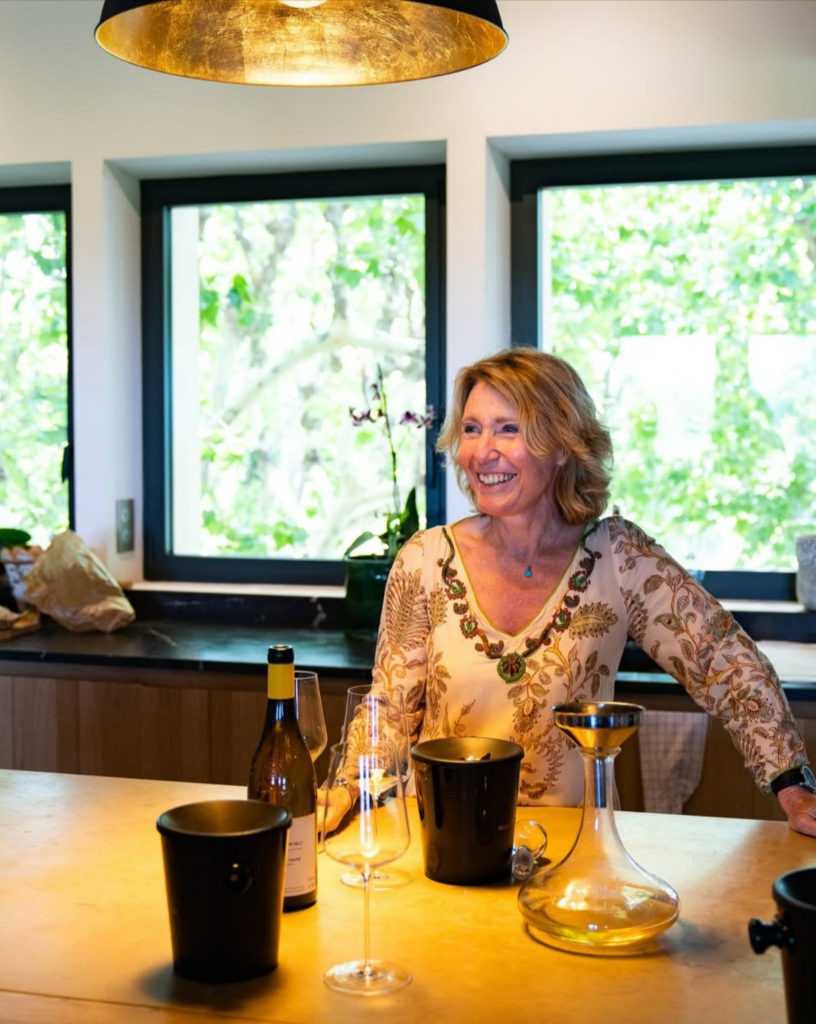
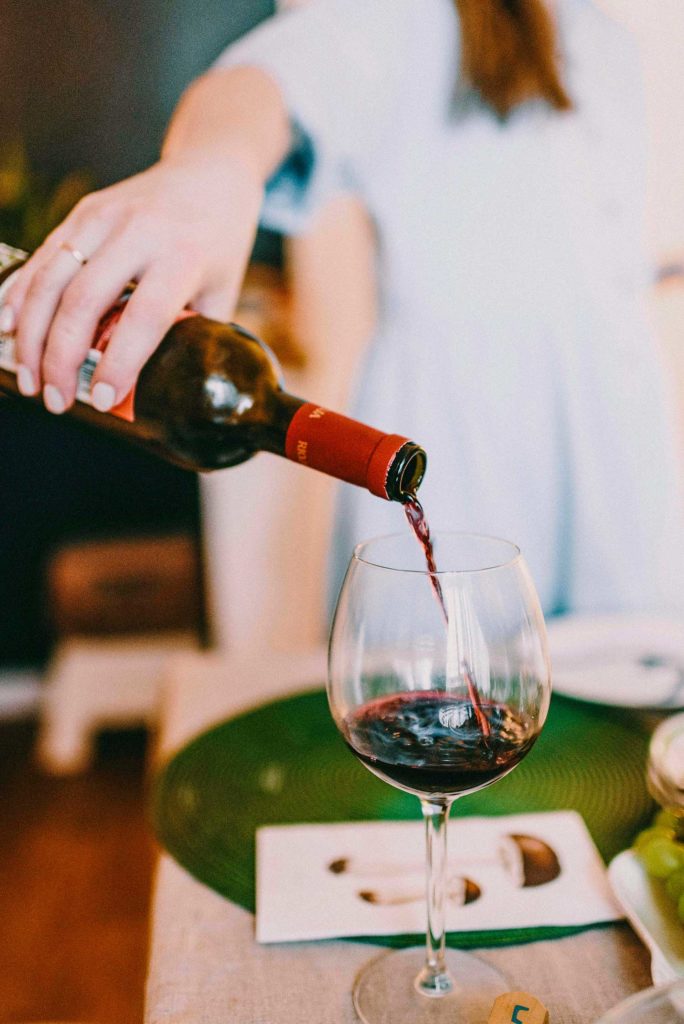
Domaine du Tix (Mont Ventoux) – Southern Rhône
Perched at an altitude of 350 meters in the foothills of Mont Ventoux, Domaine du Tix is a real gem for lovers of high-altitude wines and spectacular landscapes. This small 12-hectare estate enjoys a cooler climate than the Rhône plain, allowing the grapes to ripen slowly and the wines to develop beautiful aromas.
Here, production is based on uncertified organic farming, with great respect for the surrounding biodiversity. The estate grows Grenache, Syrah, Viognier and Clairette, producing wines that are structured, fresh and delicious. The whites are very aromatic, with notes of citrus and white flowers, while the reds are characterized by their tannic finesse and long finish.
Wine tasting takes place on a terrace offering breathtaking views of the valley in a preserved natural setting. The welcome is warm, with a clear desire to share the craftsmanship and specific characteristics of the terroir. The wines offer remarkable value for money, particularly the AOC Ventoux and IGP Méditerranée. A hidden gem, ideal for those seeking authenticity.
Domaine Galévan (Châteauneuf-du-Pape) – Southern Rhône
Located on the outskirts of Châteauneuf-du-Pape, Domaine Galévan is a family estate that has been passed down through several generations and is now run by Coralie Goumarre, one of the first female winemakers in the appellation. Run according to certified organic farming methods, the estate stands out for its artisanal, feminine, and committed approach, both in the vineyard and in the cellar.
With around 60 hectares of vines in the Châteauneuf-du-Pape, Côtes-du-Rhône Villages, and IGP appellations, Galévan produces generous, sincere, and highly drinkable wines. The reds, dominated by Grenache and Syrah, offer notes of black fruits, Provençal herbs, and licorice. The whites are expressive, balanced, and endowed with a beautiful freshness. The cuvées “Liberté,” “La Démone,” and “Amour de fruit” reflect the winemaker’s free and assertive identity.
The tour offers an immersion in the cellar, often led by Coralie herself, and a guided tasting of several wines, with clear explanations of the estate’s organic practices and philosophy. The welcome is warm, personalized, and unpretentious, making the discovery of this estate accessible, human, and enriching.
Maison Brotte (Châteauneuf-du-Pape) – Southern Rhône
Founded in 1931 in Châteauneuf-du-Pape, Maison Brotte embodies the union between family tradition and a sense of wine education. This estate is distinguished by its Wine Museum, unique in the region, which offers an interactive journey through the history of winegrowing in the Rhône region, the emblematic grape varieties, winemaking techniques, and the terroirs of the southern Rhône Valley.
The Brotte vineyard spans several prestigious appellations, including Châteauneuf-du-Pape, Côtes-du-Rhône Villages Laudun, Lirac, and Ventoux. Iconic wines such as “La Fiole du Pape” are known worldwide for their twisted bottle, but the estate also offers high-quality wines from selected parcels. The reds are powerful and complex, often dominated by Grenache, while the whites, made from Clairette and Roussanne, offer a beautiful roundness.
The museum tour ends with a guided tasting of several wines in a professional and accessible setting. Whether you are a novice or a connoisseur, Maison Brotte offers a rich and educational wine tourism experience, ideal for understanding the foundations of Châteauneuf-du-Pape wine.
Clos du Caillou (Châteauneuf-du-Pape) – Southern Rhône
The Clos du Caillou, located in Courthézon, is a unique estate with a singular history: part of its vineyards are located outside the official Châteauneuf-du-Pape appellation, as the former owner refused classification in 1936. Today, this historic choice gives the wines exceptional diversity, divided between Châteauneuf-du-Pape and Côtes-du-Rhône.
Run according to certified biodynamic principles, the estate covers around 50 hectares. It produces deep, elegant, and luminous wines that are often praised by international critics. The reds are complex, marked by notes of ripe fruit, pepper, and garrigue, while the whites are very fresh, carried by Grenache blanc, Clairette, and Roussanne.
Visits are by appointment and offer a complete tour of the vineyard, cellar, and vintages in a peaceful, wooded setting. The team emphasizes education and comparative tastings of vintages from different appellations. The finesse of the wines, the care taken in biodynamic winemaking and the warm welcome make Clos du Caillou a must for discerning wine lovers.
Maison M. Chapoutier (Tain-l’Hermitage) – Northern Rhône
Founded in 1808 and based in Tain-l’Hermitage, Maison M. Chapoutier is one of the most prestigious names in the Rhône Valley. Run by Michel Chapoutier since the 1990s, the estate has established itself as a pioneer in biodynamics and a fervent defender of the uniqueness of terroirs. It is also known for its innovative Braille labels, which have been featured on all bottles since 1996 in tribute to Maurice Monier de la Sizeranne, a native of the region.
Chapoutier cultivates numerous Rhône wines, including Hermitage, Crozes-Hermitage, Saint-Joseph, Cornas, and Condrieu, as well as estates in the southern Rhône. The reds made from Syrah (particularly the Hermitage wines) are renowned for their structure and longevity, while the whites made from Marsanne and Roussanne are highly complex.
The estate tour offers several options: walks through the vineyards, wine workshops, guided tastings, and even food and wine pairings with local products. The modern and welcoming cellar showcases the entire range. The estate caters to both seasoned connoisseurs and amateurs eager to discover the great wines of the valley.
Domaine de la Monardière (Vacqueyras) – Southern Rhône
The Domaine de la Monardière, located in the heart of the village of Vacqueyras, is an iconic family estate in the appellation. Since the 1980s, Jean-Claude and Martine Vache, joined by their son Damien, have been cultivating the vines with passion and rigor. The estate is now certified organic and focuses on authentically expressing the region’s typical terroirs of rounded pebbles and red clay.
The estate covers around 20 hectares, mainly in Vacqueyras, but also in Côtes-du-Rhône Villages. The reds, blends of Grenache, Syrah and Mourvèdre, are full-bodied but balanced, with notes of black fruit, pepper and garrigue. The rosés are very aromatic and perfect for summer, while the whites offer a welcome freshness in this southern region.
The welcome at the estate is warm, and tastings take place in a cellar adjoining the winery, where you can discover the entire range with detailed explanations. It is also possible to visit the vineyards on foot or by bike. The whole experience is authentic, educational and friendly, just like the wines: sincere, accessible and rooted in their terroir.
Domaine Paul Jaboulet Aîné (Tain-l’Hermitage) – Northern Rhône
Founded in 1834 in Tain-l’Hermitage, Domaine Paul Jaboulet Aîné is one of the historic pillars of the northern Rhône. It owes its international reputation to legendary wines such as “La Chapelle”, produced on the granite slopes of Hermitage. Since 2006, the estate has been run by Caroline Frey, a trained oenologist who has guided the entire vineyard towards certified organic viticulture, with a strong focus on biodynamics.
The estate cultivates exceptional terroirs in Hermitage, Crozes-Hermitage, Saint-Joseph and Cornas, as well as in the southern Rhône. The red wines, mainly made from Syrah, are deep, spicy, and built for aging. The whites, made from Marsanne and Roussanne, are elegant, rich, and very mineral.
The cellar tour, located in a contemporary building just a stone’s throw from the Hermitage hill, offers guided tastings in a refined setting. More in-depth options include visits to the vineyards, blending workshops, and themed tastings. The estate also offers food and wine pairings with Valrhona chocolates, located nearby. A complete experience to discover the subtleties of the great wines of the northern Rhône.
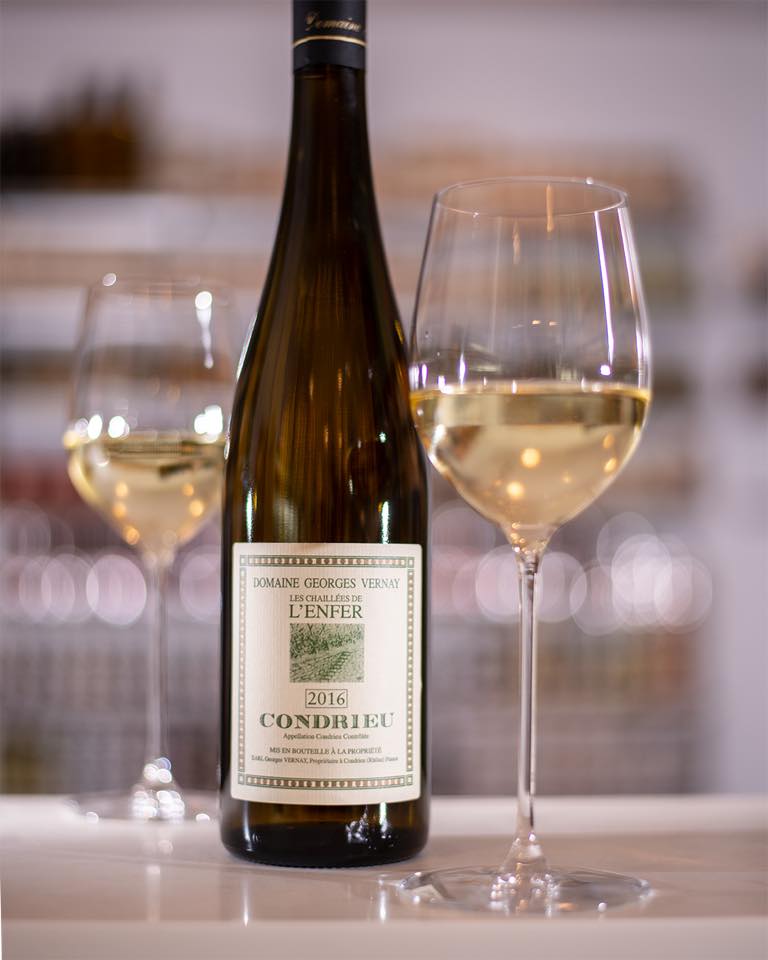
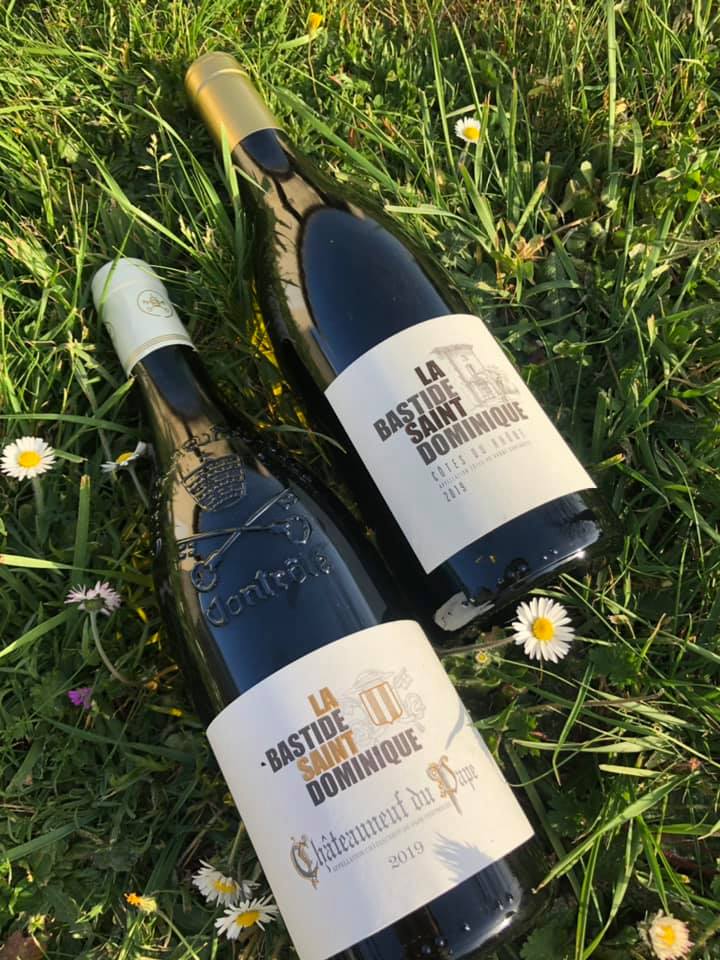
Domaine Rabasse Charavin (Cairanne) – Southern Rhône
Located in Cairanne, one of the most recent crus in the Côtes-du-Rhône Villages, Domaine Rabasse Charavin is an iconic family estate in the appellation, run exclusively by women for several generations. Today, Corinne Couturier continues this artisanal expertise, paying particular attention to plot-by-plot vinification and the authentic expression of the terroir.
The estate covers around 40 hectares, cultivated using organic farming methods on varied soils combining clay, limestone, and rounded pebbles. The reds, dominated by Grenache and Syrah, are distinguished by their generosity, mellow tannins and complex aromatic palette (spices, black fruits, garrigue). The whites, often made from Clairette or Grenache blanc, are lively and elegant, perfect for accompanying Mediterranean dishes.
The visit takes place in a friendly, family atmosphere. The traditional winery can be visited on request, followed by a guided tasting of the wines, often with the winemaker herself. The experience is authentic, educational, and warm, reflecting the image of this estate deeply rooted in its territory. An excellent stopover to discover the sincere and artisanal wines of the Haut-Vaucluse.
Château Gigognan (Sorgues) – Southern Rhône
The Château Gigognan, located in Sorgues near Avignon, is a remarkable wine estate, both for the quality of its wines and its majestic setting. This 110-hectare property, including 40 hectares of vines in Châteauneuf-du-Pape and Côtes-du-Rhône, has been certified organic for several years. The terroir, composed of rounded pebbles, sand, and red clay, gives the wines a beautiful aromatic complexity and a balanced structure.
The estate’s red wines, predominantly Grenache, offer full-bodied and generous profiles, marked by notes of black fruits, sweet spices and undergrowth. The whites, made from Clairette, Grenache Blanc and Roussanne, seduce with their freshness and finesse. The estate also offers elegant and delicate rosés.
A visit to the château includes a walk through the vineyards, a tour of the modern winery, and a guided tasting of the wines in a refined setting. The estate also offers charming accommodation on site, ideal for extending your experience. Château Gigognan is a complete destination combining heritage, wine tourism, and high standards of winemaking in the heart of the Vaucluse.
Les Vins de Vienne (Seyssuel) – Northern Rhône
Les Vins de Vienne is a unique and ambitious project that has been run since the 1990s by three renowned winemakers: Yves Cuilleron, François Villard and Pierre Gaillard. Together, they decided to rehabilitate the hillsides of Seyssuel, north of Vienne, on the left bank of the Rhône, once renowned in Roman times but abandoned since the phylloxera epidemic. This pioneering work has revived a forgotten terroir, now recognized for its potential.
The estate produces a complete range of wines from both the Seyssuel hillsides (under the Collines Rhodaniennes PGI) and more classic appellations such as Condrieu, Saint-Joseph, Côte-Rôtie and Crozes-Hermitage. The reds, made from Syrah, are refined, fresh and elegant, while the whites, often made from Viognier, are distinguished by their aromatic intensity and balance.
The tour of the estate includes a visit to the cellar, an explanation of the renaissance of the Seyssuel terroirs, and a varied tasting in a contemporary wine cellar. The experience is enriching and modern, highlighting a collective and daring approach that has enriched the wine-growing landscape of the northern Rhône.
Domaine de Corps de Loup (Tavel) – Southern Rhône
The Domaine de Corps de Loup, nestled between Tavel and Saint-Michel-d’Euzet, offers an authentic immersion in the southern vineyards, with a particular focus on rosés for gastronomy. This family estate, whose origins date back to the 17th century, was revived in the 1990s by the Daumen family, who completely restructured the vineyard with a sustainable and quality-focused approach.
The vines, planted on terraces on south-facing slopes, enjoy optimal sunshine and clay-limestone soil ideal for growing Grenache, Cinsault, and Syrah. The wines produced are representative of the Tavel appellation, renowned for its structured, colorful rosés with good aging potential. The estate also produces elegant reds and exclusive whites under the Côtes-du-Rhône appellation.
A tour of the estate allows visitors to discover the cellar, the vineyards, and the family’s artisanal approach to winemaking. Particular attention is paid to comparative tastings of different styles of rosé, which are often overlooked. The natural setting and views of the surrounding hills add to the charm of the experience. This is the ideal place to rediscover rosé as a wine of its own right.
XperienceFrance is your travel specialist in France.
